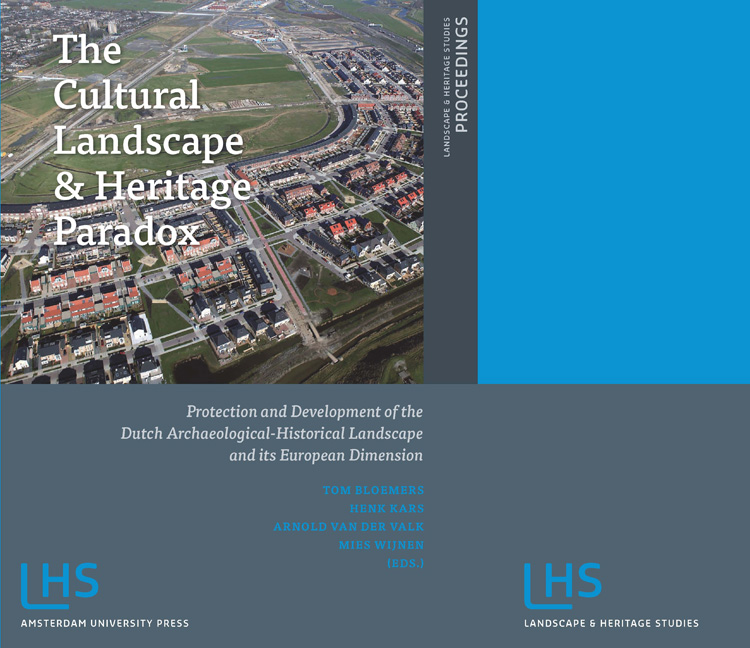 The Cultural Landscape and Heritage Paradox
The Cultural Landscape and Heritage Paradox Book contents
- Frontmatter
- Contents
- Preface
- I INTRODUCTION
- II INSIGHTS AND PROSPECTS OF ARCHAEOLOGICAL-HISTORICAL LANDSCAPE STUDIES
- III LINKING KNOWLEDGE AND ACTION
- IV IMAGINATION - FACTS AND CONSTRUCTIONS
- V SHARING KNOWLEDGE - STORIES, MAPS AND DESIGN
- VI SYNTHESIS AND CONCLUSIONS
- VII MANAGEMENT OF KNOWLEDGE
- VIII AGENDA FOR THE FUTURE
- IX SUMMARY
- X APPENDIX
- Subject Index
- Index of Places and Regions
6 - Interpretative Heritage Research and the Politics of Democratization and de-Democratization. As Illustrated by the plight of hard-Working Amateurs in the trenches of revamped Policy arrangements
Published online by Cambridge University Press: 21 January 2021
- Frontmatter
- Contents
- Preface
- I INTRODUCTION
- II INSIGHTS AND PROSPECTS OF ARCHAEOLOGICAL-HISTORICAL LANDSCAPE STUDIES
- III LINKING KNOWLEDGE AND ACTION
- IV IMAGINATION - FACTS AND CONSTRUCTIONS
- V SHARING KNOWLEDGE - STORIES, MAPS AND DESIGN
- VI SYNTHESIS AND CONCLUSIONS
- VII MANAGEMENT OF KNOWLEDGE
- VIII AGENDA FOR THE FUTURE
- IX SUMMARY
- X APPENDIX
- Subject Index
- Index of Places and Regions
Summary
ABSTRACT
Interpretative heritage research (IHR) can be used to increase the effectiveness and improve the democratic character of archaeological protection policies. Taking an interpretive heritage research approach, we argue that the apparently successful implementation of the Valletta Convention in the Netherlands has effectively excluded amateur archaeologists, a group of semi-experts often deemed essential to the protection and development of archaeological heritage. This in turn has caused unnecessary discussion and frustration, undermining public support for the initial policy goal of heritage conservation. Our analysis links up with recent academic debates on the policy-practice nexus in processes of Europeanization where implementation of European policies is viewed as a form of uncontrolled evolution. As such, implementation processes are unpredictable and frequently produce unanticipated consequences. Reducing negative side effects and re-targeting policies for greater efficacy and democracy requires insight into the pathways of implementation which can be acquired by means of interpretive heritage research.
KEY WORDS
Malta Treaty (Valletta Convention), archaeology; policy implementation, amateur archaeologists; power, exclusion, subjugation
INTRODUCTION: THE POLITICAL IMPERATIVE OF INTERPRETATIVE HERITAGE RESEARCH
The scientific practices of historians, archaeologists, historic geographers and art historians can be described as interpreting the remains from the past (such as artefacts, documents and relics) and using these interpretations to construct new knowledge about the past (Lorenz 1998; Ashworth/Graham/ Tunbridge 2007). There are also academics who do not study the past or relics but rather the way in which people relate to them. Society, science, policy and science-policy interfaces are objects of study for the social scientist. One can scientifically interpret and analyse the ways people construct and interpret the past and its material remains (Bloemers et al. 2001). Academics in this field perform what we call interpretive heritage research (IHR). This form of research is practised in disciplines such as anthropology, sociology, planning and cultural and tourism studies, but also in disciplines that interpret the past (history, art history etc.). Topics include the meanings of Greek monuments for local inhabitants (Caftanzoglou 2001), the visitors of heritage sites (Gable/Handler 2003), the spiritual significance of cathedrals (Shackley 2002), the struggle for the appropriation of Stonehenge (Bender 1998), the relationship between heritage and identity of the Crimean Tatars (Van Assche 2004), as well as lessknown studies such as the touristification of Auschwitz (Lennon/Foley 2000).
- Type
- Chapter
- Information
- The Cultural Landscape and Heritage ParadoxProtection and Development of the Dutch Archaeological-Historical Landscape and its European Dimension, pp. 291 - 308Publisher: Amsterdam University PressPrint publication year: 2010
- 1
- Cited by


